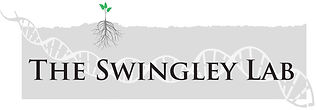
TEACHING
My courses leverage the connection between microbial life and their environment as a means for understanding the great diversity of metabolic lifestyles in bacteria and archaea. I seek to engage students to critically discuss and assess a how microbial life plays a critical role in nearly every aspect of life on Earth.
BIOS 313: Microbiology
Microbiology is both a well-established and actively growing field of research that relates to microorganisms in our environment. Microorganisms are integrated in every aspect of our world, including all directly observed natural environments and inside human and other animal bodies. Modern techniques have rapidly transformed and complemented centuries-old technology in describing how microbes interact with one another and their local environment. This class examines all aspects of microbes, microbial history, and metabolic processes with the goal of clarifying how these tiny life forms affect profound impacts on our planet.

BIOS 419: Microbial Systematics & Diversity
Understanding how the vast array of microbial species grow and interact with each other and their environment is a vital step toward analyzing these communities. In this course, we will learn the metabolic characteristics of bacterial and archaeal species that allow them to thrive in their given niche. We will take advantage of each organism’s metabolic preferences in order to grow and isolate these species. Finally, we will characterize the metabolic and phenotypic profile of isolated species using standard phenotyping techniques (e.g. catalase test, Gram stain, etc.) and 16S ribosomal sequencing. The course is designed as an intimate exposure to the microbial world in order to achieve a greater understanding of what makes each microbial species unique.
GEOL 468: Geomicrobiology
Geomicrobiology is an actively growing field of research that relates microbial activities and geological processes in ways that are increasingly relevant to a broad array of scientific topics. Microorganisms are involved in mineral precipitation and dissolution and control the distribution of many elements in diverse environments at and below the surface of the Earth. Similarly, geochemical and mineralogical factors exert important controls on microbial evolution and structure of microbial communities. The recognition of the important interplay between geology and microbiology has stimulated exciting new approaches and insights in existing fields of inquiry and also resulted in prominent contributions to new research thrusts (e.g., life in extreme environments). This class examines these issues from the perspectives of geochemistry, microbial ecology, molecular biology, and ecosystem studies.


